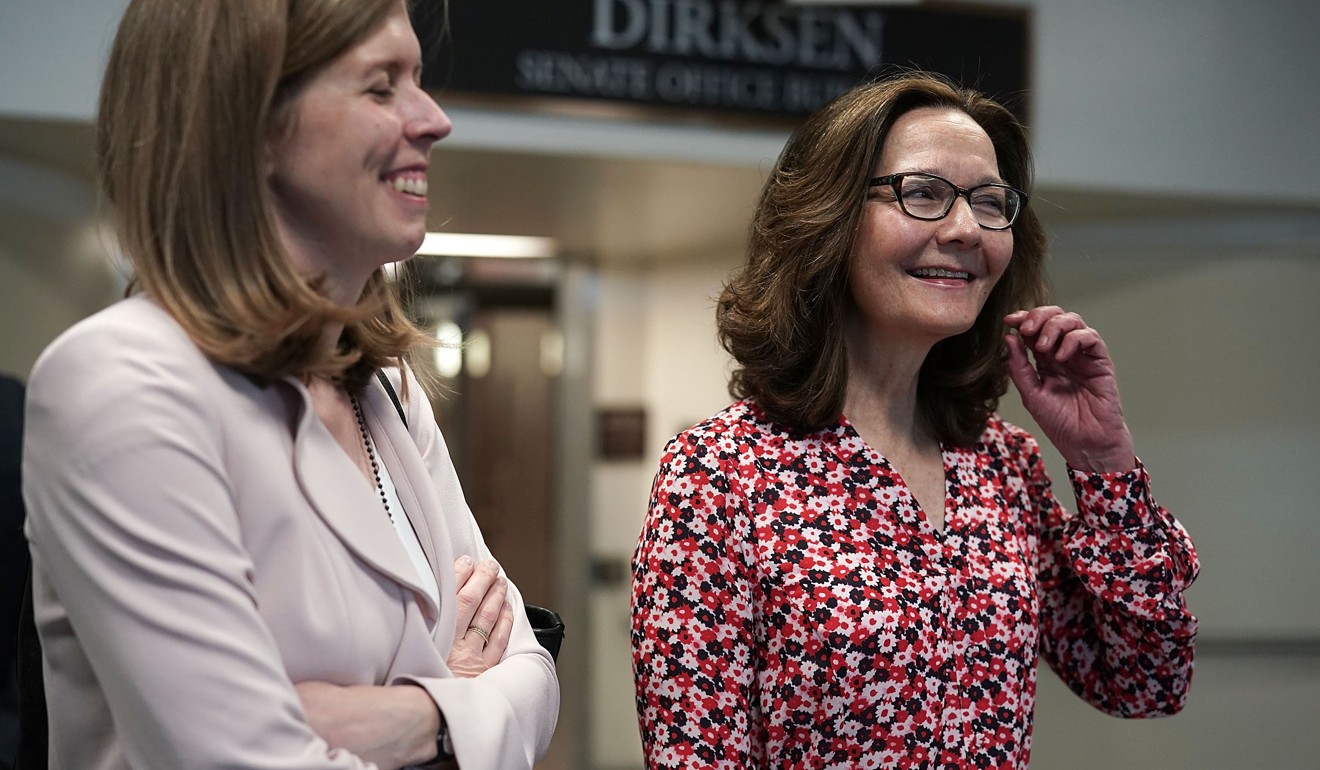
Trump’s CIA nominee Gina Haspel promises not to restart ‘torture’ tactics, including waterboarding
Haspel’s prepared remarks also recount her early days as a spy ‘in dusty back allies of third-world capitals’
Gina Haspel, US President Donald Trump’s choice to lead the CIA, is offering assurances that if she gets the job, the spy agency wouldn’t resort to waterboarding and other techniques that she once helped supervise and critics call torture.
“Having served in that tumultuous time, I can offer you my personal commitment, clearly and without reservation, that under my leadership CIA will not restart such a detention and interrogation programme,” Haspel plans to tell the Senate Intelligence Committee at her confirmation hearing on Wednesday, according to excerpts released on Tuesday night.

In 2002, Haspel oversaw a secret agency prison in Thailand, where The New York Times reported that an al-Qaeda suspect, Abd al-Rahim al-Nashiri, was waterboarded three times. She also wrote a memorandum approving the shredding of videos that documented such methods.
I recall my first foreign agent meeting was on a dark, moonless night with an agent I’d never met before
“I understand that what many people around the country want to know about are my views on CIA’s former detention and interrogation programme,” Haspel said in the excerpts released by the agency, where she has served as acting director since Mike Pompeo became secretary of state. “I have views on this issue, and I want to be clear.” But the excerpts offered no further statements, except for the pledge not to restart such a programme.
Senators are sure to press her to say more about her views and about her role in interrogation methods that have since been banned.
Senator Ron Wyden of Oregon, a top Democrat on the Intelligence Committee, said after meeting with Haspel on Tuesday that he plans to vote against her confirmation.
“The administration is still unwilling to declassify information that I believe the American people have a right to have and will in fact answer the key questions, which is what was the nominee’s role during this crucial period and what sort of person is she?” Wyden told reporters.
Trump defended Haspel in a tweet on Tuesday, saying “This is a woman who has been a leader wherever she has gone. The CIA wants her to lead them into America’s bright and glorious future!”
She has a lot of baggage that will further stain our reputation in the world
Haspel, who’s expected to testify in both open and closed sessions on Wednesday, noted the historical marker she would achieve as the agency’s first female director. Noting there were few women in senior roles when she joined the CIA in 1985, she said she’s tried to do her part to change that “quietly and through hard work – to break down those barriers.”
Haspel, 61, also made it clear she relished the classic spywork she engaged in earlier in her career.
“I excelled in finding and acquiring secret information that I obtained in brush passes, dead drops, or in meetings in dusty back allies of third-world capitals,” she said in the prepared testimony. “I recall my first foreign agent meeting was on a dark, moonless night with an agent I’d never met before. When I picked him up, he passed me the intelligence, and I passed him extra money for the men he led. It was the beginning of an adventure I had only dreamed of.”
But the interrogation methods are still certain to be at the forefront of debate on Wednesday. While many past CIA and military officials have vouched for Haspel, others are among her critics.
Ali Soufan, a former FBI special agent, said the interrogation techniques did amount to torture and were counterproductive in gathering intelligence.
“I cannot believe after all these years, we’re still talking about this and we are re-fighting this battle again,” he told reporters on a conference call Tuesday set up by opponents of Haspel’s nomination. “She has a lot of baggage that will further stain our reputation in the world.”

